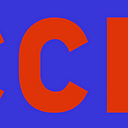Thoughts on Today’s Chicago Journalism Town Hall 2020 and “Dear Lori” as a Way for Media to Profitably Connect Chicagoans and City Hall
by Steve Sewall 2/23/2020 — revised 2/27
I’m bushed from four hours of furious networking and note-taking at today’s great event. It was greater by far — more optimistic and forward-looking — than its gloomy 2009 predecessor. Surely that’s because today’s event was fueled in part by 11 hard years of coming to terms with the brave new world of digital media and journalism.
My notes indicate that every one 24 of today’s panelists had a useful message to impart. And the surprise 25th, Sharday, definitely had a useful message. Wish I had time/space to list all 25.
OK, now to Dear Lori. It’s a new concept, early (incipient) development stage. Today I buttonholed a dozen participants and panelists about it.
What is it? It’s a convenient and efficient way for Chicagoans to share their concerns and solutions to Chicago’s violence with their mayor. And a way for Mayor Lightfoot respond back. It’s also one step she can take to her to fulfill her inaugural promise of last May to “mobilize the entire city” to address violence.
Dear Lori is a website — a free Google site would suffice to launch it on a small scale — manned by a single person who receives, curates and posts perhaps 50 Dear Lori messages daily from Chicagoans of all ages and backgrounds. Messages, once posted, are forwarded on to City Hall for review and response by the mayor and her staff.
Quite substantive informational threads could arise from these exchanges, threads possibly serving as focal points for discussion citywide among Chicagoans, city planners and City Hall.
That’s it!
Dear Lori is new. The closest thing to it are Mayor Lightfoot’s Facebook page and Twitter feed, neither of which dedicated to facilitating ongoing public, two-way Chicagoan/City Hall communication.
Organizations and media of all kinds could participate in Dear Lori, which would then expand to a more robust online presence with larger staff.
Dear Lori could explicitly embrace Mayor Lightfoot’s longterm goal of making Chicago “the safest big city in America.” It could also advance the goals of
- Giving all Chicagoans an informed voice in the government decisions that affect their lives
- Making all Chicagoans (City Hall included) responsive and accountable to each other in shaping a future that works for all residents.
To my mind, Dear Lori rests on a premises that Mayor Lightfoot has reapeated affirmed: that violence and other systemic crises will remain unsolved in cities like until Chicago until City Hall is tapping deep into the experience, ideas and immense positive energies of Chicagoans of all ages and backgrounds.
Now let’s stretch our imaginations a bit. As the Dear Lori concept catches on, its proceedings will be enhanced and critiqued across Chicago’s media: from the city’s community, university, ethnic and daily newspapers to its college and talk radio stations to its on online and social media to its Can-TV and mainstream TV News programs.
This citizen-participatory, problem-solving media activity will in time create citywide market demand for a media hub capable of aggregating this activity within the format of a single media program, accessible to all Chicagoans at the same time. Citywide television alone has the capabilities to perform this task and exploit this opportunity.
This New Chicago Way piece describes the present historical moment in Chicago, one that could produce TV programming dedicated to enabling all Chicagoans — rich and poor, black Hispanic and white, young people and police, citizens and City Hall , even law-abiders and law breakers — to shape the city’s best future.
TV programming on this citywide scale would make Chicago the first city in America to put the miracle of modern digital communications technologies to truly efficient and constructive civic uses.
It would serve Chicago as an antidote to the city’s global reputation as the poster child of American urban violence.
But I get ahead of myself. At the moment, Dear Lori is but a shot in the dark of a murky, politicized media landscape.
I’m game to meeting with people who’d like to know more about it. I’m at the address below. I’m thinking of small-group mid-March after I’ve made the rounds of a few funders and Mayor Lightfoot’s office. Donations to our GoFundMe page will pave the way for me to host a small gathering, perhaps in the back room at Billy Goat’s on 430 N. Michigan Ave, with cheezborgers and fare for vegans and vegetarians provided by Chicago Civic Media.
Along with thanks to Ken Davis and Linda Paul for making today’s meeting of journalistic minds possible, I send out thanks to CAN-TV for broadcasting the event citywide to Chicagoans whose minds have never had a glimpse of the inner workings of Chicago journalism.
CAN-TV, you are far and away the most underused of Chicago’s powerful media resources.
— — — — —
More at ChicagoCivicMedia.com. I’m at sewall2020@comcast.net.
Steve Sewall, Ph.D., is a Chicago educator and Director of Chicago Civic Media.
